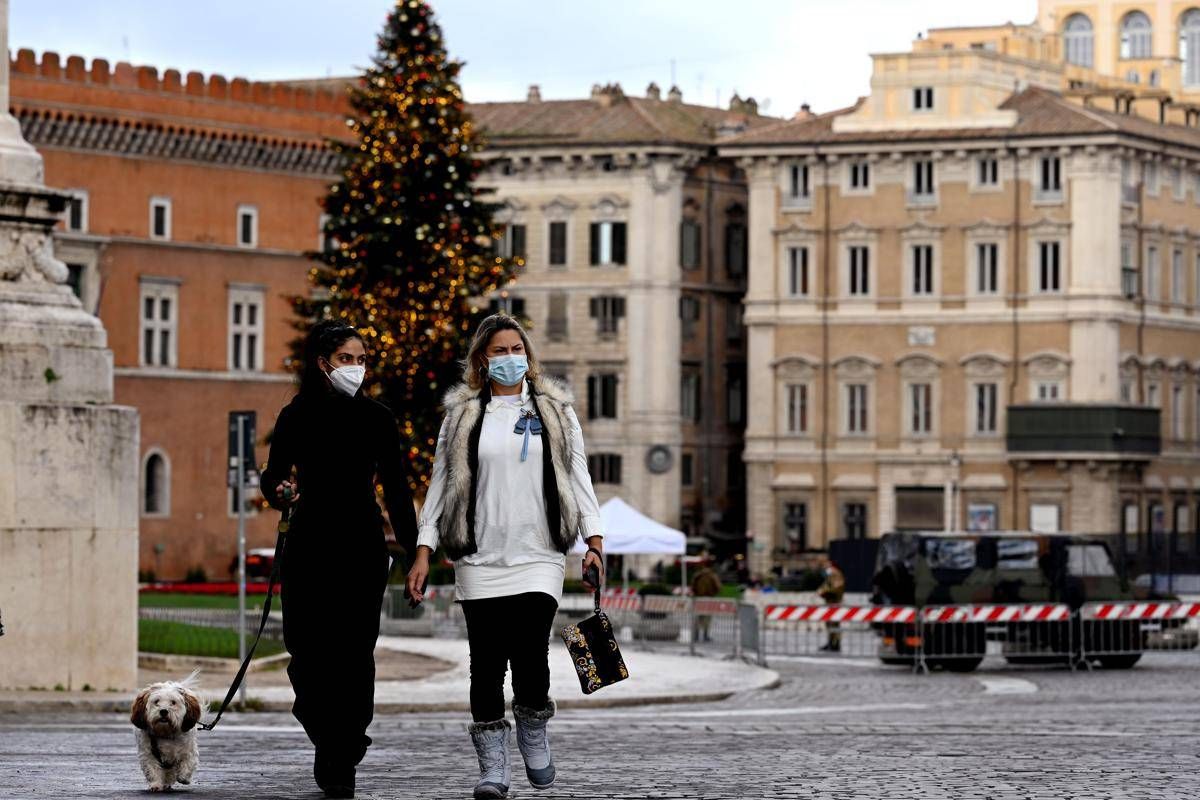
[ad_1]

Published on: 12/31/2020 12:03 AM
Italy in the red zone for New Year’s Eve 2021. From today until January 3, the most restrictive rules, provided for by the Christmas decree, are back in force, with the addition of a ‘special’ curfew. According to the calendar provided by the provision, December 31 marks the reestablishment of travel and business restrictions to face the risks associated with the spread of the Coronavirus. Until January 3, and then again on the 5th and 6th, Italy will have to deal with a scenario of maximum severity characterized by a high level of risk (scenario type 4). So here’s an extra-large curfew for New Year’s Eve: between December 31 and January 1, ban on going out from 22:00 to 07:00, except for work, necessity or health reasons that must be documented with self-certification. The rest of the days it will stay between 10 p.m. and 5 a.m.
Answers to frequently asked government questions help clarify the overall picture of the measures.
MOVEMENTS – Returning to one’s residence, domicile or domicile is always a legitimate reason for moving, just as it is always possible to travel for proven reasons of work, health or necessity, without distinction of days and hours. Until January 6, 2021, all movements are prohibited, even to visit friends or family, that involve leaving the Region in which you live or in which you have residence. On days in the red zone, it will be possible, once a day, to travel to visit family or friends, even other Municipalities, but always and only within the same Region and within the maximum limit of two people. In any case, the person or two people who move can bring with them children under 14 years of age (or other children under 14 over whom the same people exercise parental authority) and disabled or non-self-sufficient people who live with them. You can go to help a family member or friend who is not self-sufficient.
SELF CERTIFICATION – You must always be able to demonstrate that the movement is within those allowed, also through self-certification. The veracity of the self-declarations will be subject to subsequent controls and the proven falsehood of what is declared as a crime. The justification of the reason for the work can also be proved by showing the appropriate documentation, provided by the employer (credential or similar) suitable to demonstrate the declared condition.
BARS AND RESTAURANTS – Restaurants and other catering businesses, including bars, patisseries and ice cream parlors, are open exclusively for take away and home delivery. In the areas or at times when the consumption of food and beverages is suspended within the premises, customers are allowed to enter and stay there only for the time strictly necessary to acquire take-out products and always in compliance. of contagion prevention measures. However, meetings and consumption are not allowed in the vicinity of the premises.
Shops – Retail trade activities are suspended, except for the sale of food and identified basic needs. The sale of permitted goods can take place both in “neighborhood” establishments (small stores) as well as in medium and large sales structures, even within shopping centers, provided that access is allowed only to establishments or parts of establishments that sell the goods allowed. Shopping center closings on holidays and the eve of holidays remain firm. Markets are closed, except for activities for the sale of food products only. Newsstands, tobacconists, pharmacies and parapharmacies remain open.
REPRODUCTION RESERVED © Copyright Adnkronos.
[ad_2]